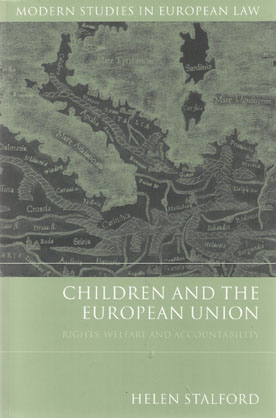
This book examines in detail the status of children in the EU. Drawing on a range of disciplinary perspectives, including sociology of childhood and human rights discourse, it offers a critical analysis of the legal and policy framework underpinning EU children's rights across a range of areas, including family law, immigration and child protection.
Traditionally children's rights at this level have been articulated primarily in the context of the free movement of persons provisions, inevitably restricting entitlement to migrant children of EU nationality. In the past decade, however, innovative interpretations of Community law by the ECJ, coupled with important constitutional developments, have prompted the institutions to develop a much more robust children's rights agenda.
This culminated in the Commission's launch, in July 2006, of a comprehensive EU strategy to promote and safeguard the rights of the child as well as the incorporation of a range of children's rights provisions into the proposed Lisbon Treaty.
The book therefore comes at a pivotal point in the history of EU children's rights, providing a detailed and critical overview of a range of substantive areas, and making an important contribution to international children's rights studies.